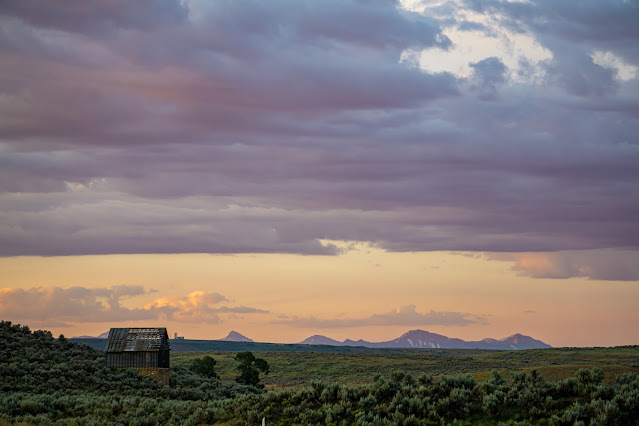The Face of the Sky
Tonight in 1 Corinthians 15 (verses 35-38) we read where Paul answers questions about the resurrection by talking about how plants grow. He mentions the way seeds come off a plant, shriveling up and seeming very dead before growing again into new life. Paul treats this as common knowledge among his audience, which it undoubtedly was. He even goes so far as to say "thou fool" to those who use the decay of the mortal body to question where the bodies of resurrected beings come from.
Nature, Paul demonstrates, gives us the type for how it works. By observing the plant world we can easily see how God takes a dead body and, from it, raises a very different body that is new and full of life.
Not only does this seem to answer the question sometimes posed about whether or not our resurrected bodies are composed of the same elements as the bodies we possessed in mortality (a problematic proposition, given the cyclical nature of elemental systems), but it also has some interesting implications for just how different a resurrected body might be from what we currently inhabit.
But what most struck me tonight was the reminder Paul's words gave me of this, from Jesus:
"O ye hypocrites, ye can discern the face of the sky; but can ye not discern the signs of the times?" (Matt. 16:3)
In this passage from Matthew, Jesus rebukes the Pharisees and Sadducees for comprehending the natural world and its workings, but not comprehending the workings of God. He uses the very strong word "hypocrites" for this failing, and that's what gave me pause tonight. Why that word? It doesn't seem to be one Jesus uses idly. Apart from potential translation shenanigans, two non-mutually exclusive possibilities occur to me:
1. Maybe he's rebuking them for putting in the time and effort to understand worldly things but not doing the same for spiritual things. This would be a biting criticism of those who are supposed to be spiritual leaders, and it seems to be in line with his critique of the Jewish rulers in general (they're too worldly, they love power and praise but not devotion, etc.).
2. But what if he's calling them hypocrites because understanding the natural world (the face of the sky) and understanding the workings of God (the signs of the times) are the same thing, or at least related applications of the same skill? Because God is the author of nature's laws, the world's architect, the master scientist of the cosmos and all that they contain, the natural world is full of examples of how He works. If we can discern His movements and patterns in the way the elements function, we should also be able to discern His spiritual workings, because they follow the same principles.
I found that thought fascinating tonight. Over the past year and a half I've been trying to grow a better garden by learning more about how plants and ecosystems function. In the process, I've had many light bulb moments—many little glimmers of greater, more fascinating things at work than I had previously supposed. More than once I've seen in those glimmers a principle that seemed more far-reaching than just how to know when your tomatoes need watering or what the growth cycle of garlic may be. I've learned a lot, and often been awed by completeness of the system God has established, or overwhelmed in my efforts to re-establish something like it in my little patch of suburbia.
I've learned that people, like plants, let you know what they need if you take the time to listen to them. God always listens, and provides for all who trust Him just as He does for the lilies of the field. I've also learned that sometimes with us, as with garlic, what seems like a period of decline is more like a period of incubation and preservation in preparation for fuller realization of our potential.
What I'm saying is, both of the interpretations above make sense to me, and because I've experienced it lately, the second one excites me. It means the way to comprehend our divine creator is all around us, if only we have eyes to see it.


Comments